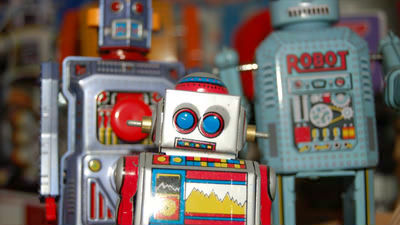'Leisure' may be important to counter human beings from losing their labor to AI

by
With the growth of the AI and robot fields that have made remarkable progress in recent years, there are many people who have a sense of crisis that 'your work may be automated by AI etc.' 'It's important to enjoy leisure time,' said Adam Waytz , a psychologist at Kellogg's Graduate School of Management , to counteract such AI and robot automation.
Leisure Is Our Killer App
https://sloanreview.mit.edu/article/leisure-is-our-killer-app/
Waytz says, 'What future expectations do you believe, we should worry about being robbed of robots in the near future,' and that both truckers and lawyers, and even robot designers Not too safe. Under these circumstances, some people have come up with the idea that acquiring skills that prevent people from acquiring robots is the key to protecting their work.
With regard to the question 'What is the skill that is not automated by robots and AI in the first place?', There is also a claim that it becomes difficult to be automated by robots and AI by acquiring all kinds of knowledge and skills. However, Waytz sees this approach as unsustainable, as people must always learn to adapt to a new era.

by
One of the skills that Mr. Waytz thinks against the automation by AI seems to be 'sociality' of human beings. Humanity's sociality makes it possible to understand the emotions of others and to observe things from the perspective of others different from you. Social skills enable people to realize sympathetic collaborations with colleagues and customers, and many companies are focusing on training sociality when developing their employees.
Waytz believes that the social trend of workers is a trend that is opposed to the wave of automation by robots and AI. A joint study by Harvard professor Michael Norton and Waytz has shown that many people are reluctant to replace robots with tasks that require social and emotional skills. became. On the other hand, in areas where analytics skills such as data analysts are required, people were not much reluctant to substitute AI for work.
Also, robots and AIs are good at doing the same job over and over, but they have the weakness of being less responsive to unexpected changes and irregular situations. For example, the production delay caused by the electric car maker Tesla is due to the fact that the robot could not respond to ' unexpected movement of objects ' although automation was promoted by the robot but a bottleneck occurred in the production process That's what Waytz points out.
On the other hand, even in the face of anomalous situations, humans can determine the situation, perform multitasking with multiple tasks, and learn. Therefore, Waytz believes that human's flexible response can be a great weapon against robots and AI.

by
Jobs that require sociability and flexibility may be challenging for workers, but it is also true that these advanced jobs are very tiring. Since continuing to work in high-level work places a heavy burden on the mind and body, the turnover rate of people in high-level jobs tends to be high.
Therefore, Waytz argues that what is important for people engaged in work that can not be easily replaced by robots or AI is 'satisfying leisure time well.' The worry that 'I don't know when my work will be automated' may put more stress on the situation and make things worse, but enjoying leisure time and getting back in my mind gives workers an advantage Said, bringing Wayt.
Many organizations are already realizing that leisure is important to prevent employee burnout and improve productivity. According to Waytz, companies are encouraging employees to take longer holidays, and taking measures to focus on enjoying leisure time after work hours.
For example, the automaker Daimler has introduced an email autoreply feature that eliminates the need to reply to work-related emails on holidays. In Daimler, emails sent to employees on vacation are automatically deleted, and the sender is notified that the email will be automatically deleted and the recipients will not respond.

by
Waytz believes that well-being for employees to enjoy leisure not only prevents burn-out but also brings other functions in an era of labor automation. The act of enjoying leisure is something that robots and AI can not do, and it is possible that workers can become better thinkers and workers by enjoying their leisure time.
Waytz once asked people in the San Francisco Bay Area to work in the technology industry, 'What can human do and what robots can not do?' One of the interviewees, venture capitalist Henry Wang, said, 'There is no wandering thinking about robots,' replied that humans can wander thinking. It is an advantage of robots that they can keep working without distractions, but by wandering their thinking during leisure, there is a possibility that robots and AI can do what they can, says Waytz. Yes.

Related Posts:







